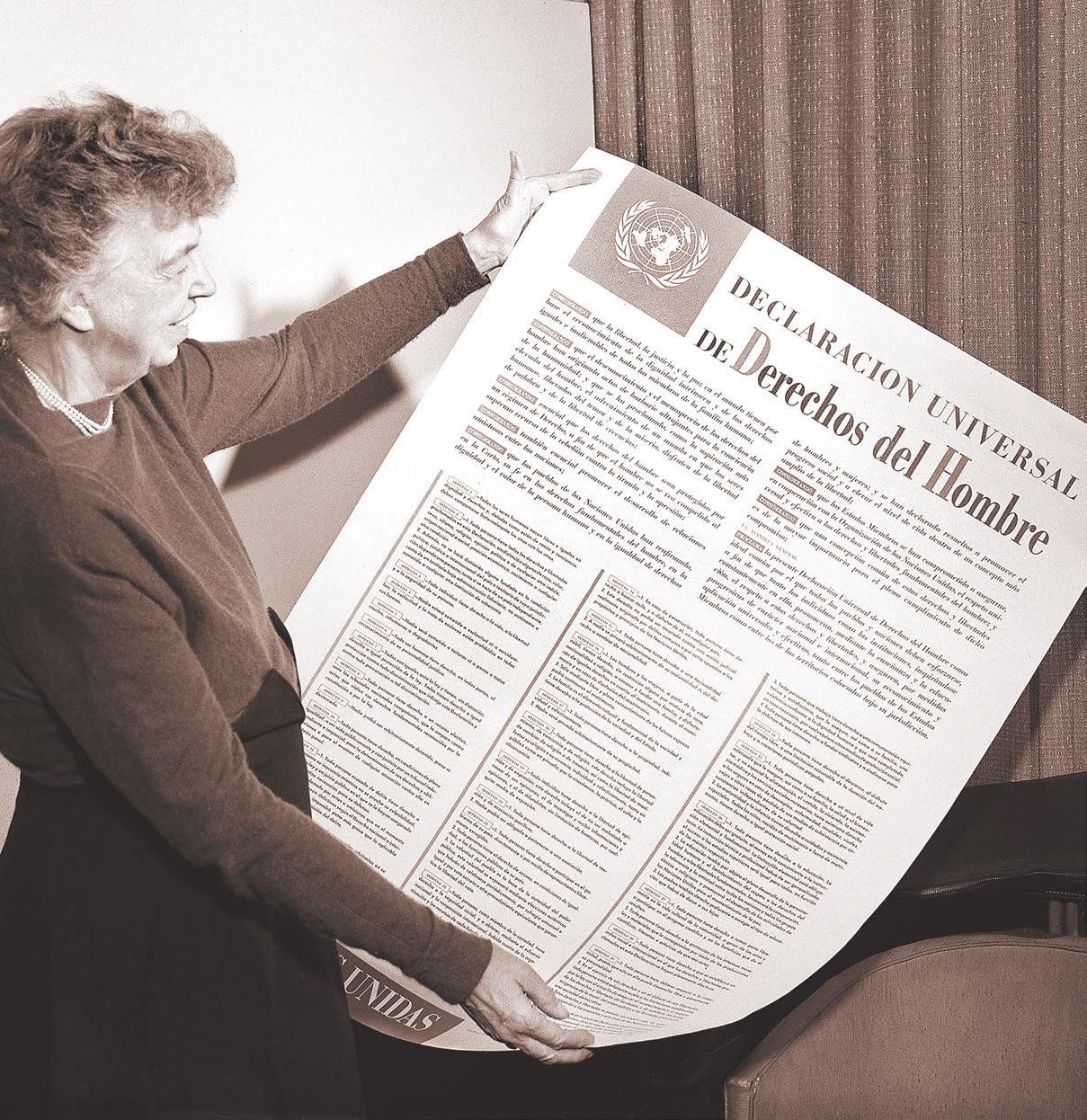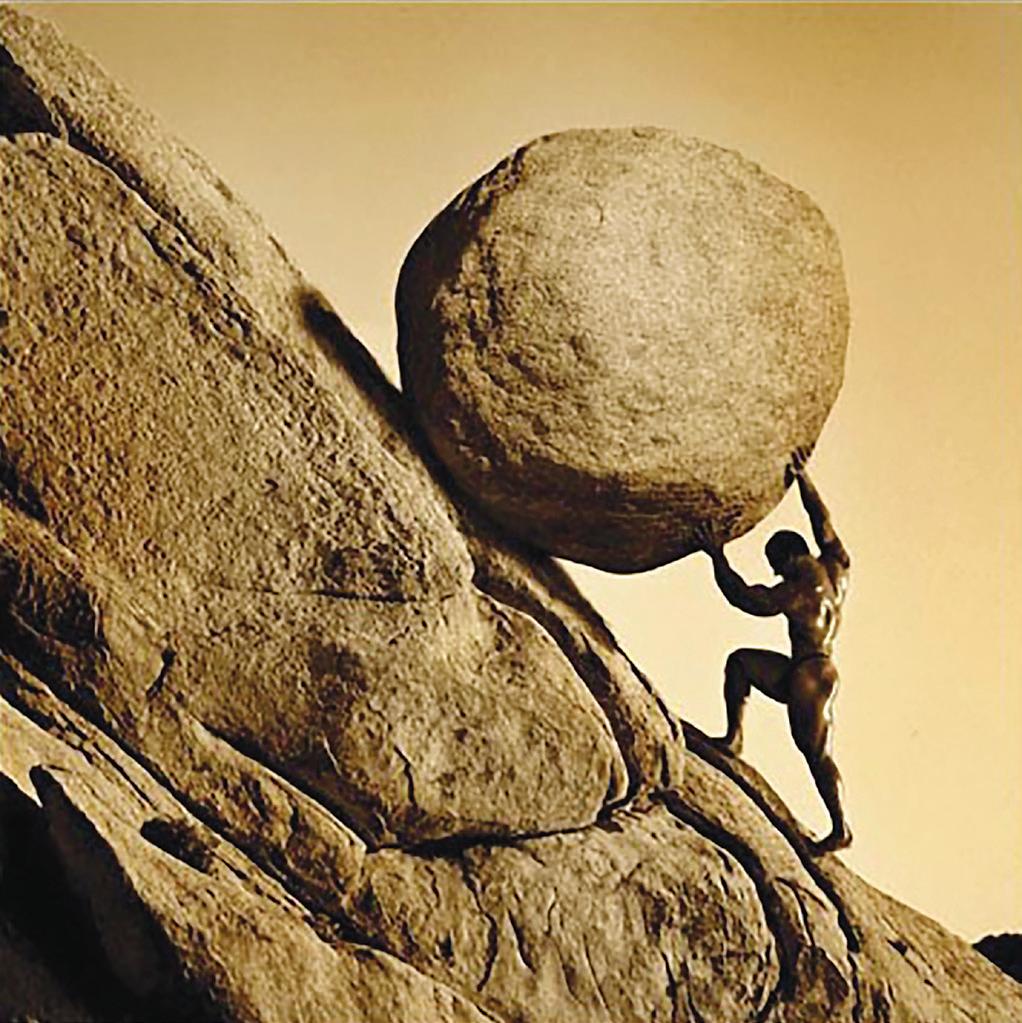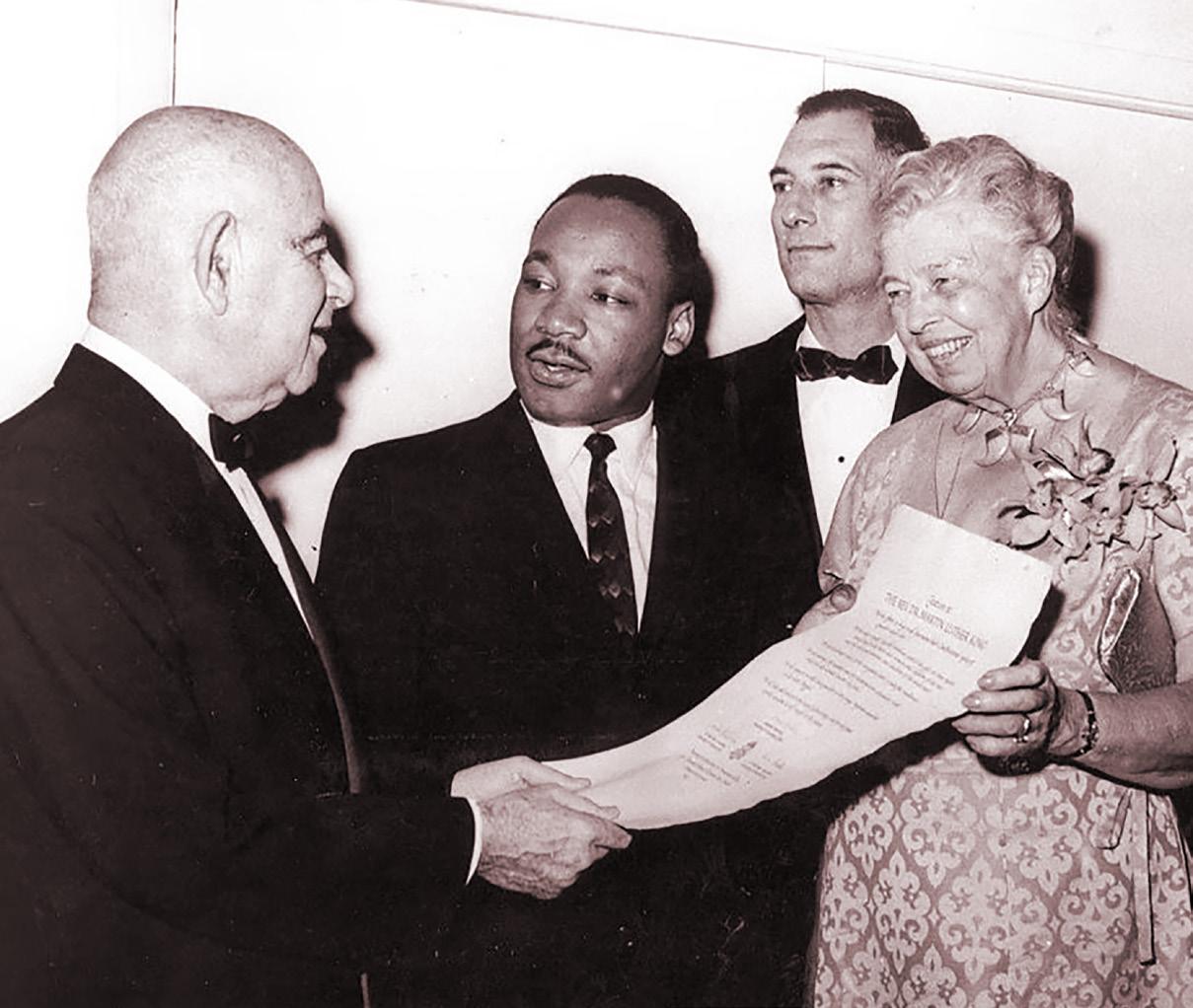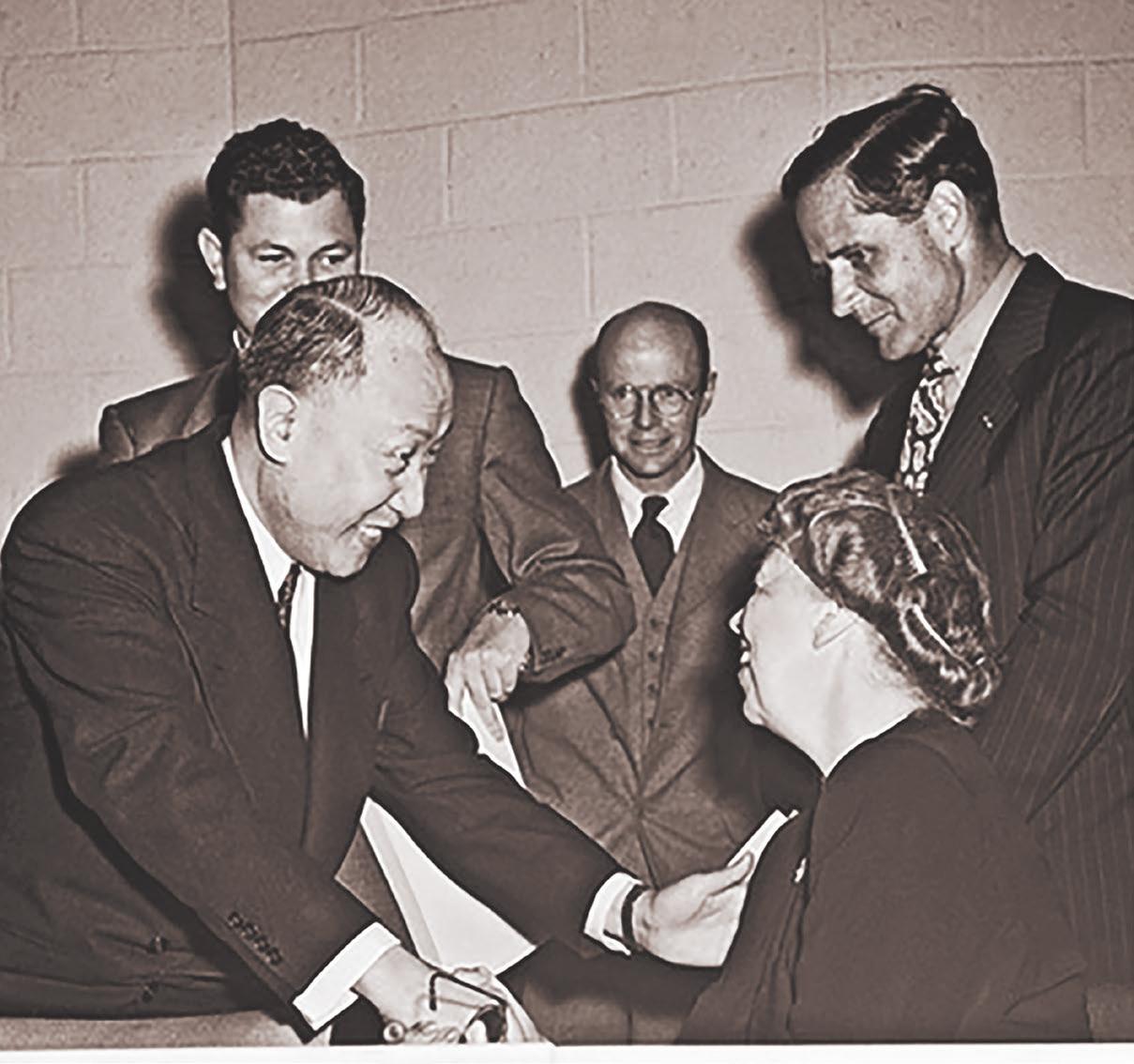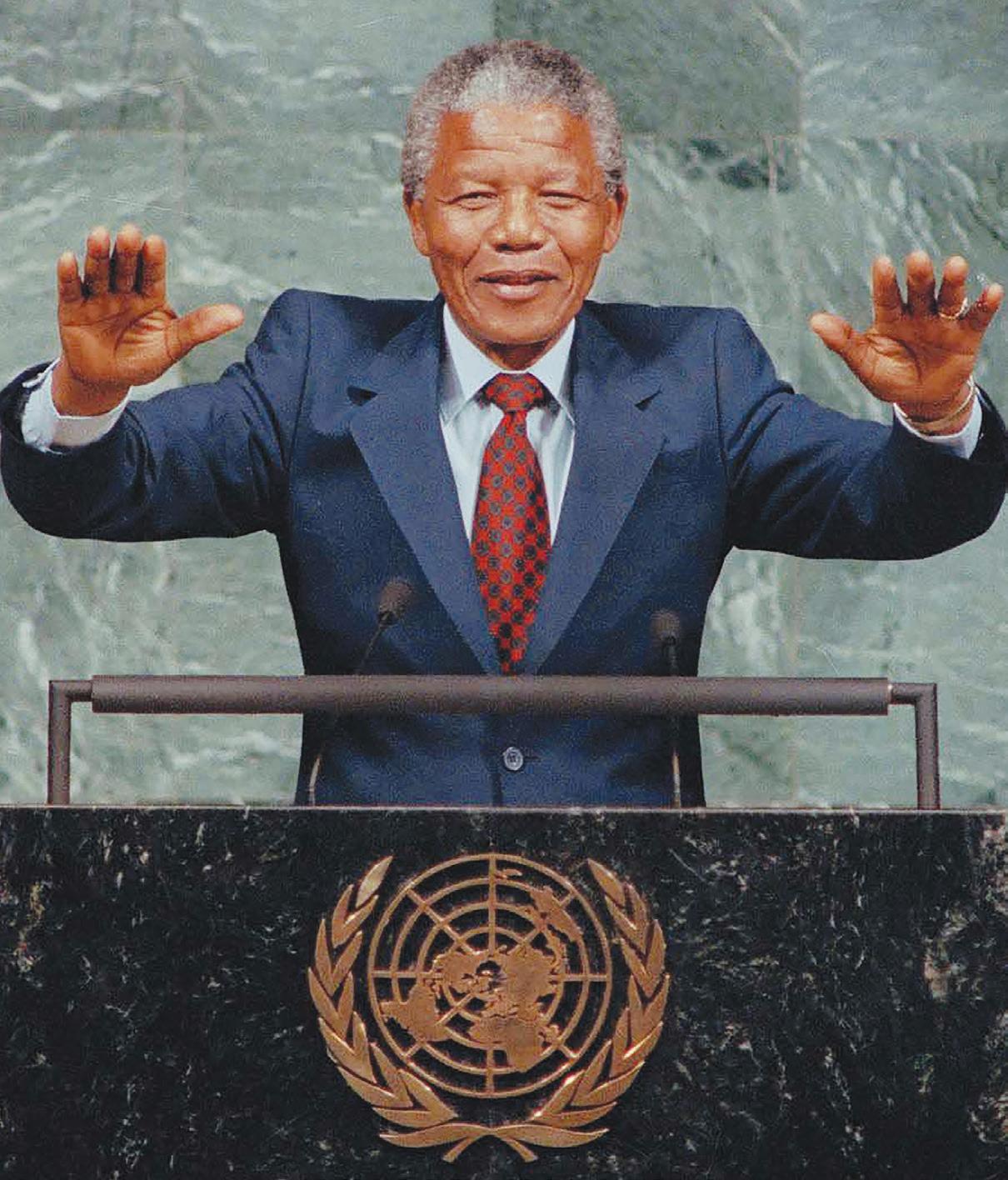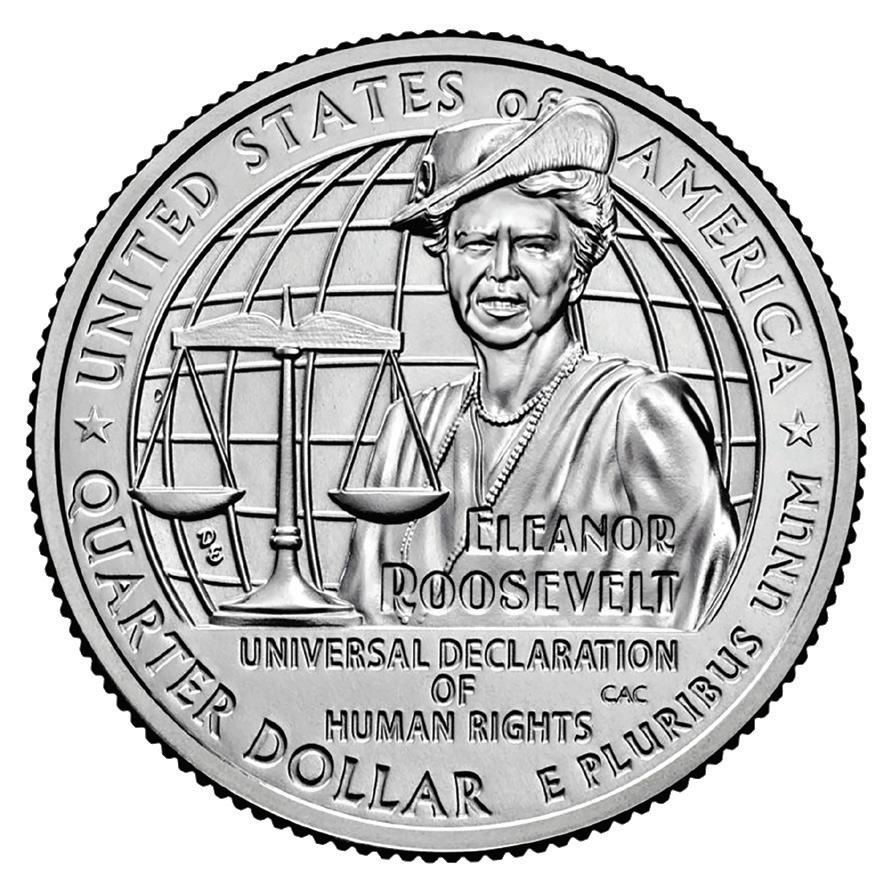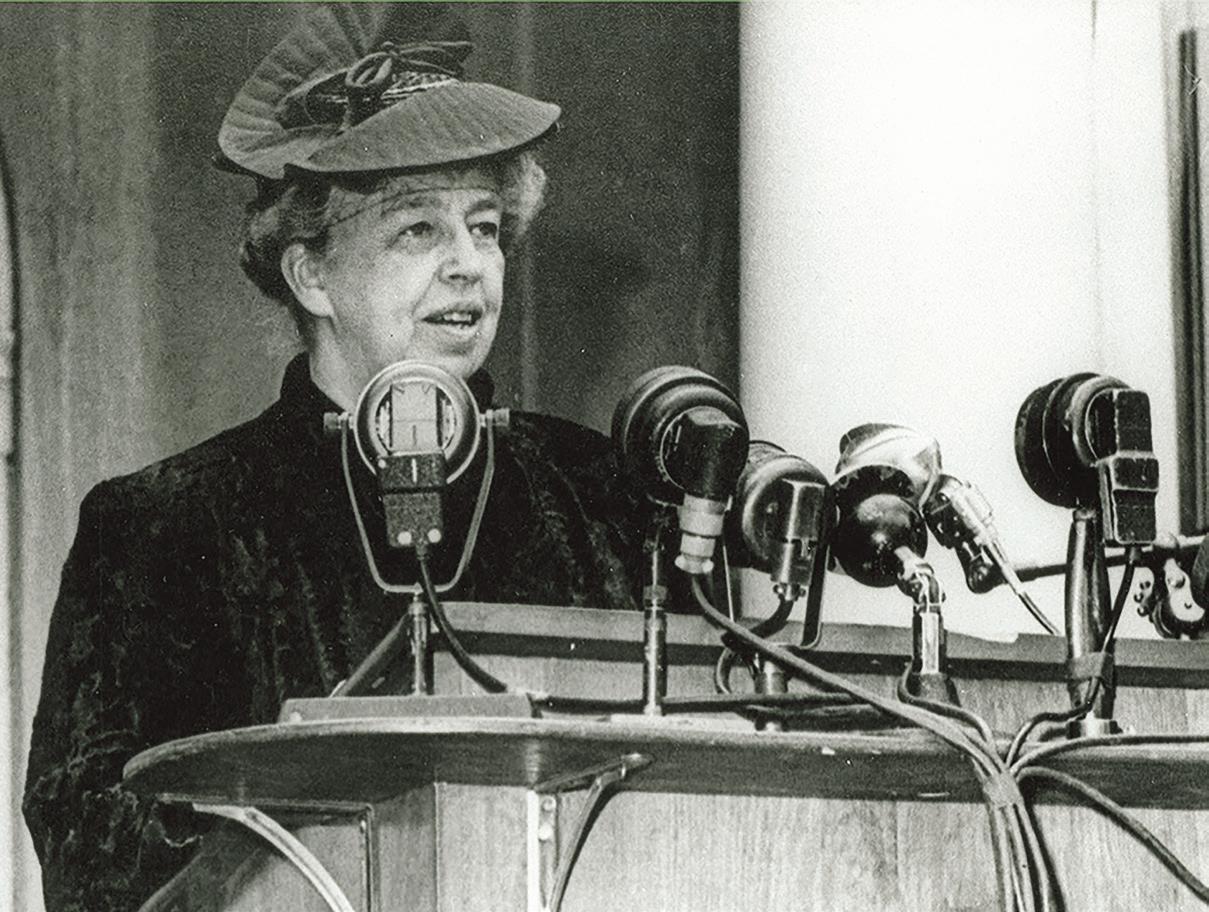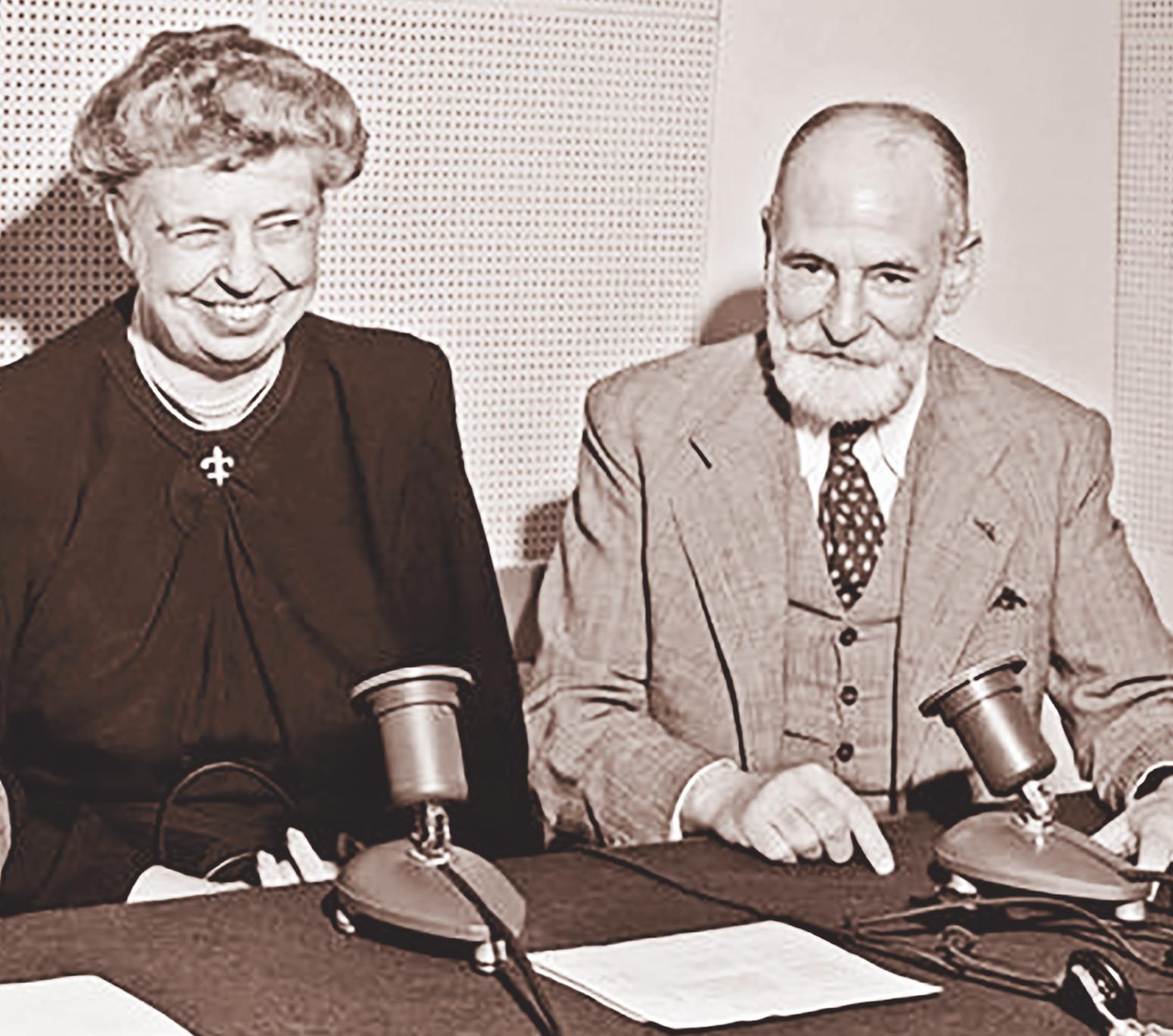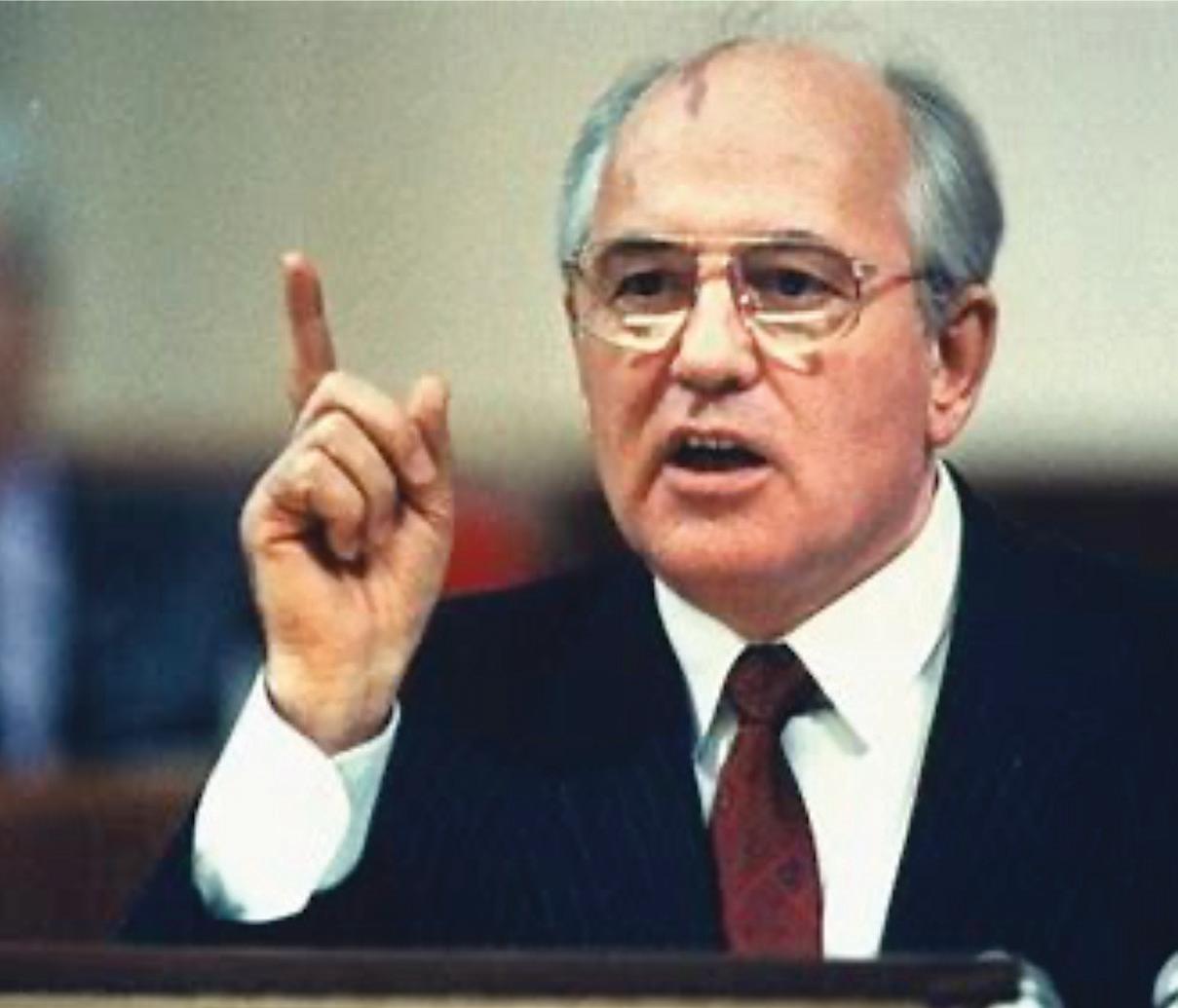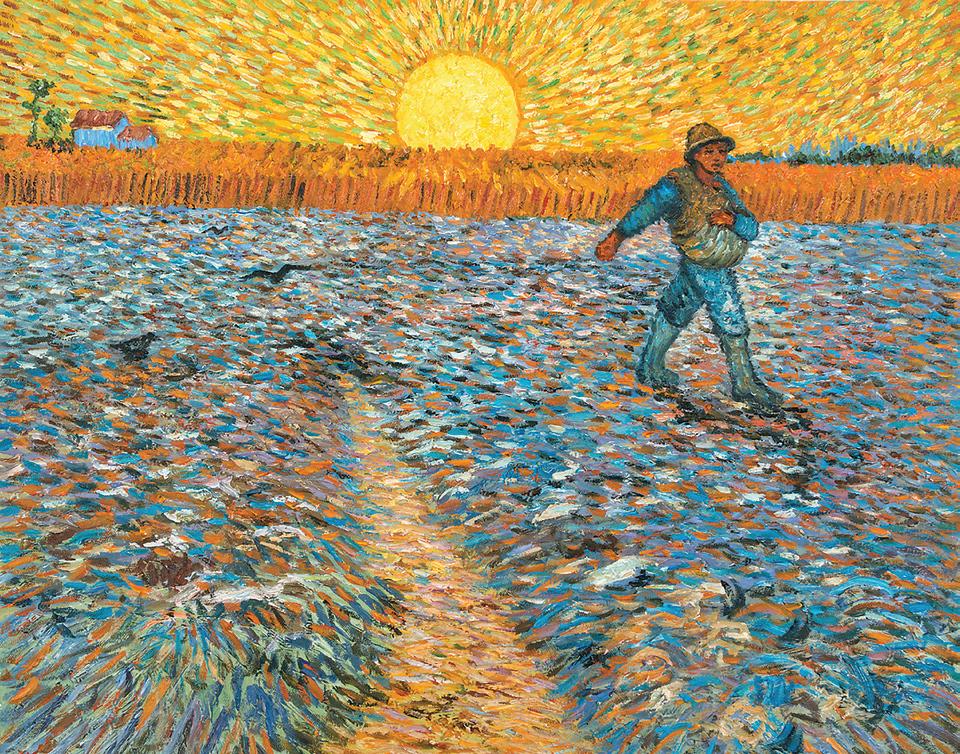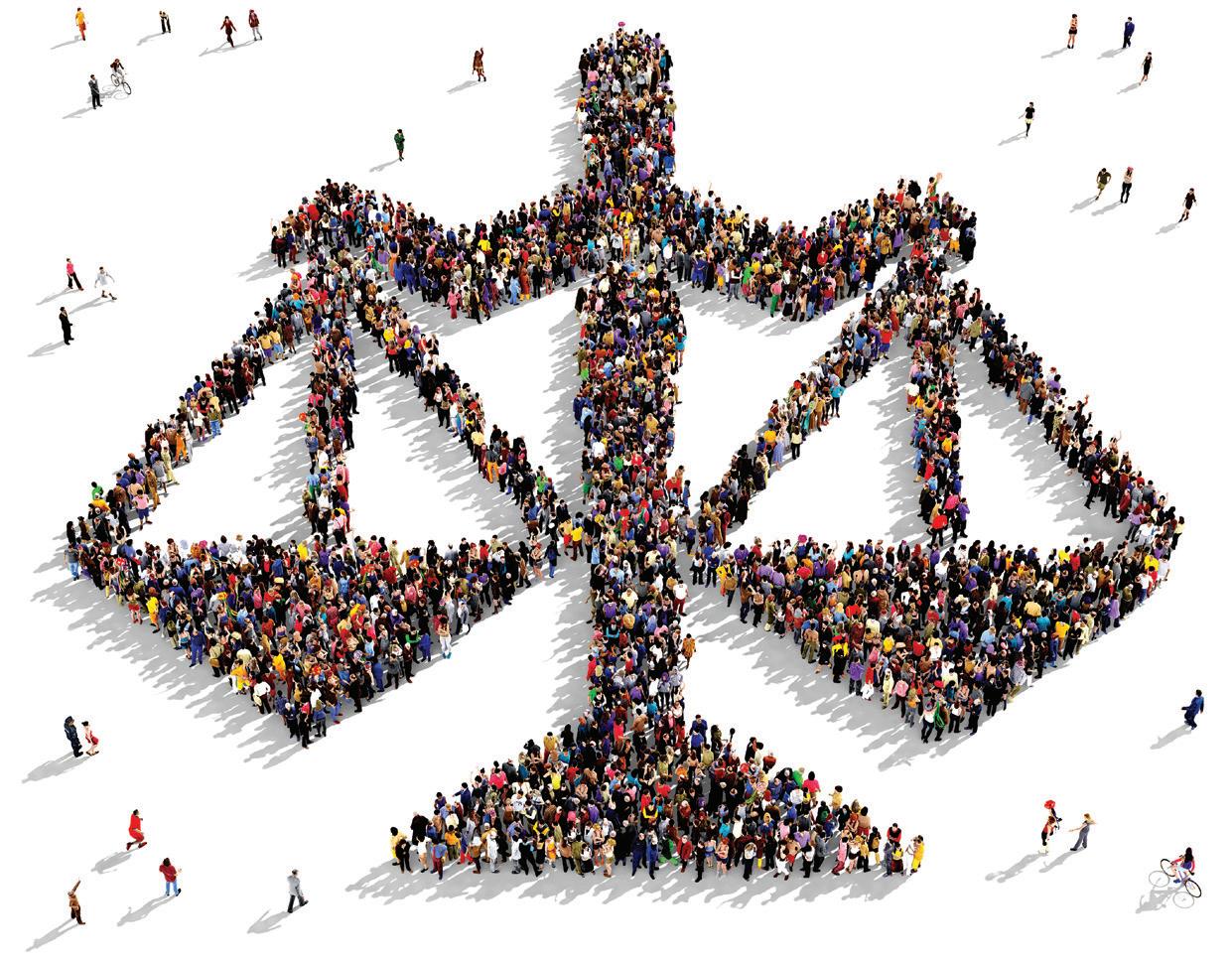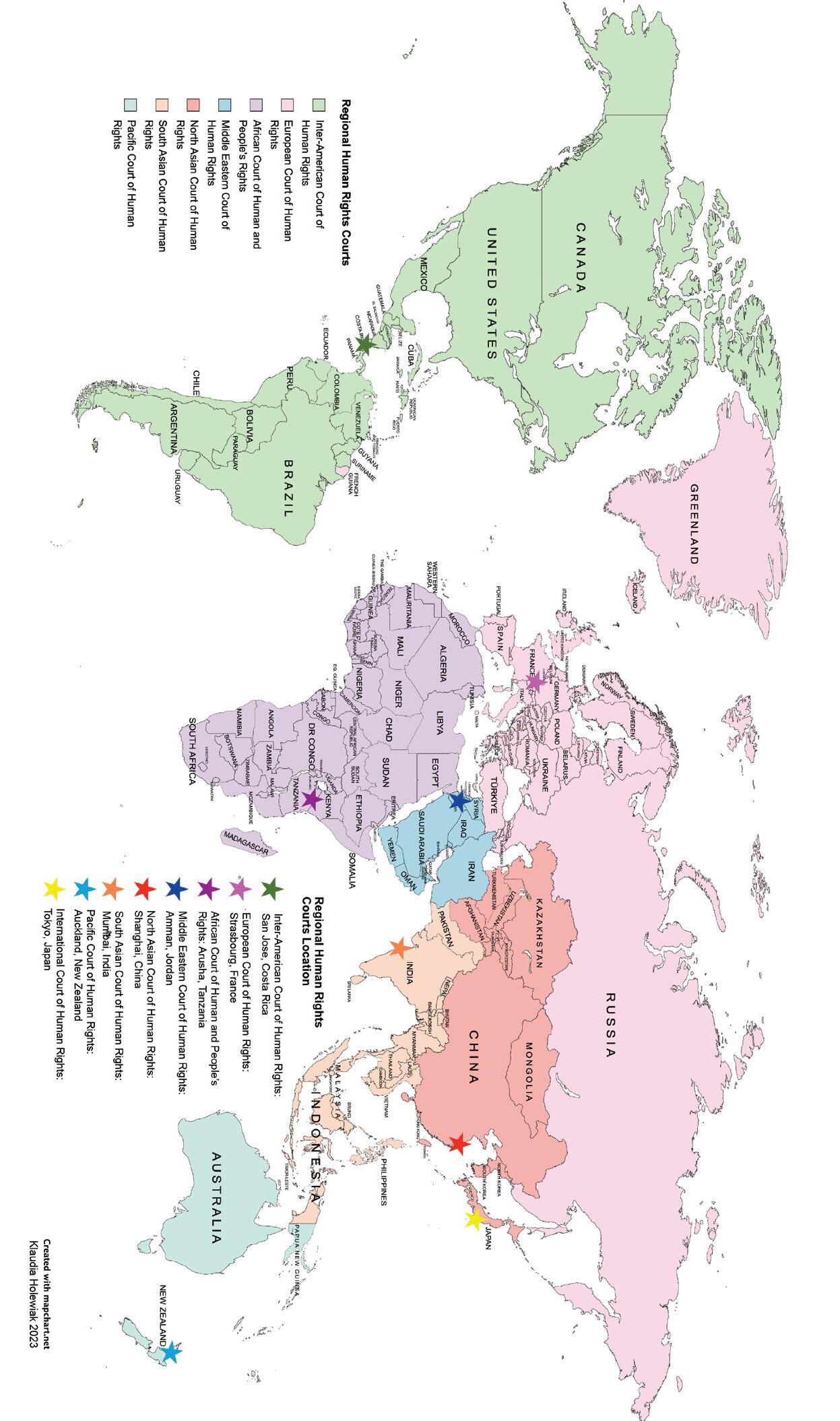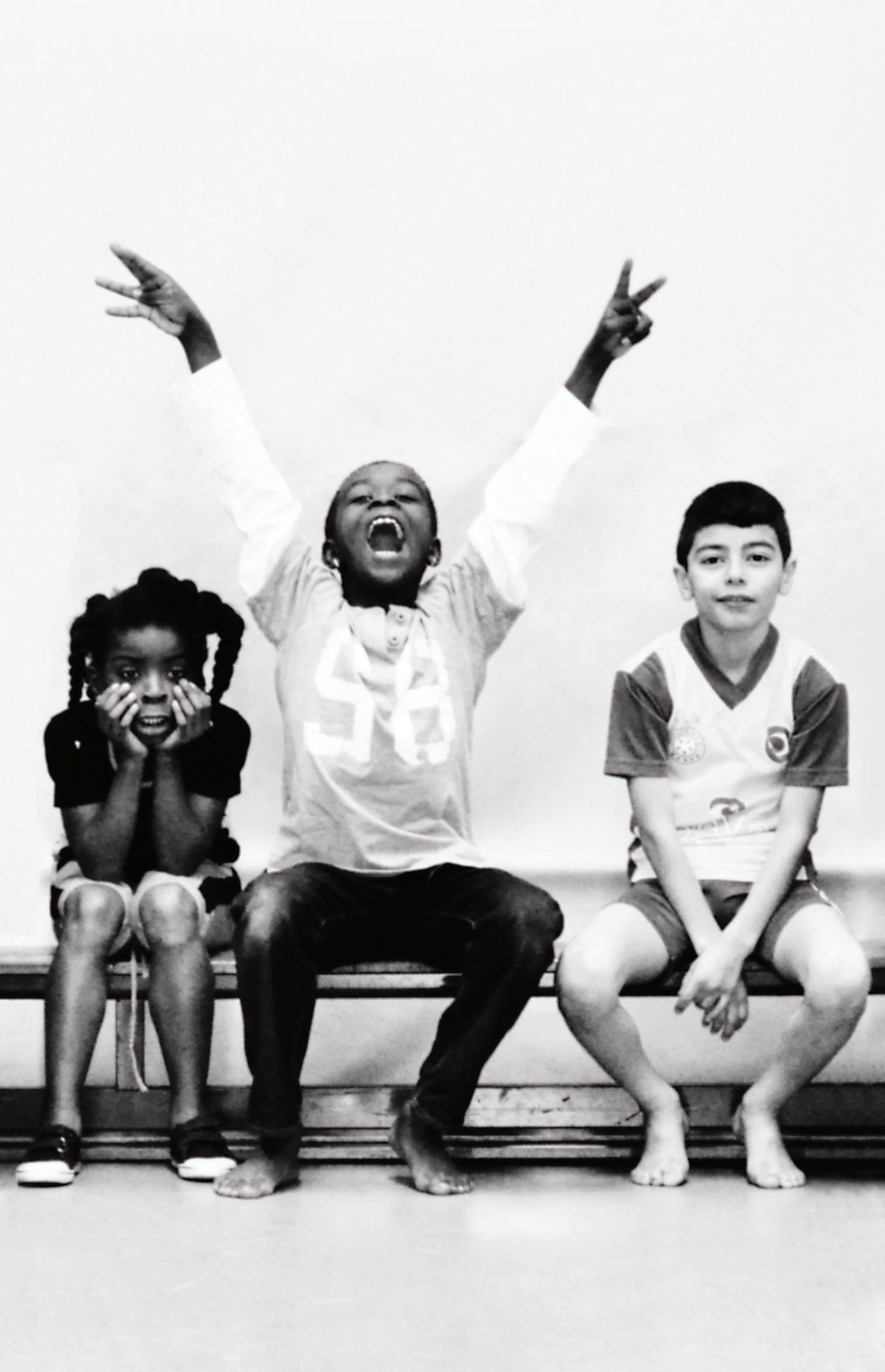l ook I ng B ack to l ook f orward 1
The stories we tell create the lives we live. The story of the international movement that Eleanor Lives! continues started to be told 3,600 years ago. We ask you to share this story. Humans are gifted storytellers; stories become expectations, and then become law.
• In 1795 B.C.E., the first list of rights was Hammurabi’s Code, written by a Persian leader on a stone monument.
• In 539 B.C.E., Cyrus the Great, another Persian leader, included rights on a clay cylinder.
• In 1215, the British Magna Carta was the first list of rights on paper.
• In 1762, Swiss-born philosopher Jean Jacques Rousseau wrote in Social Contract , that people have the power to write a list of rights as part of their social contract with each other and those who govern: “The People invent the machine; the Prince merely operates it.”
• In 1787, the framers of the United States Constitution voted against a Bill of Rights. An angry Thomas Jefferson, who was in France at the time, wrote to James Madison saying: “A Bill of Rights is what the people are entitled to against every government on Earth, and which no just government should refuse.” Madison then wrote a Bill of Rights and it became the first 10 Amendments to the U.S. Constitution.
• In 1941, as millions died in World War II, President Roosevelt declared a list of rights, “Four Freedoms” for “everyone in the world.”
• Freedom of Speech
• Freedom of Religion
• Freedom from Want
• Freedom from Fear
1 This heading is a tribute to Professor David Caron, who said it and lived it.
9
• In 1945, at the closing ceremony for the United Nations Charter in San Francisco, President Harry Truman called for the preparation of an International Bill of Rights, and added “that Bill of Rights will be as much a part of international life as our own Bill of Rights is a part of our Constitution.”
• In 1947, Eleanor Roosevelt, with the help of others, including Rene Cassin (France), Charles Malik (Lebanon), John Humphrey (Canada), and P.C. Chang (China) created the Universal Declaration of Human Rights (UDHR).
• In 1948, the United Nations unanimously passed the UDHR.
• In 1950, a list of rights in the European Convention on Human Rights took the “first steps” to make the rights in the UDHR enforceable. The European Court of Human Rights reviews cases that arise in 47 countries and issues orders in all of those countries. This serves as a model for other existing Regional Courts: the African Court of Human and Peoples’ Rights, and the Inter-American Court of Human Rights.
• In 1976, acting through the United Nations, countries ratified the twin Covenants on Economic and Social Rights and Civil and Political Rights as treaties. This was a great stride, but the Covenants are mostly unenforceable and require reports, not law.
• In 1984, John Humphrey, a Canadian and one of the principal drafters of the UDHR wrote: “If the international community ever becomes really serious about human rights, the time will come when the European example will be followed on a universal scale.” The time has come. The global south should have courts similar to the global north. Everyone is entitled to have their rights enforceable.
• For 2024, the year after the 75th anniversary of the UDHR, Version 14 of IBOR is below. The list of rights has gone from stone, to paper, to digital. It includes Regional Courts and an International Court of Human Rights to review the decisions of Domestic Courts and ensure that IBOR is enforceable in the courts of all countries.
10
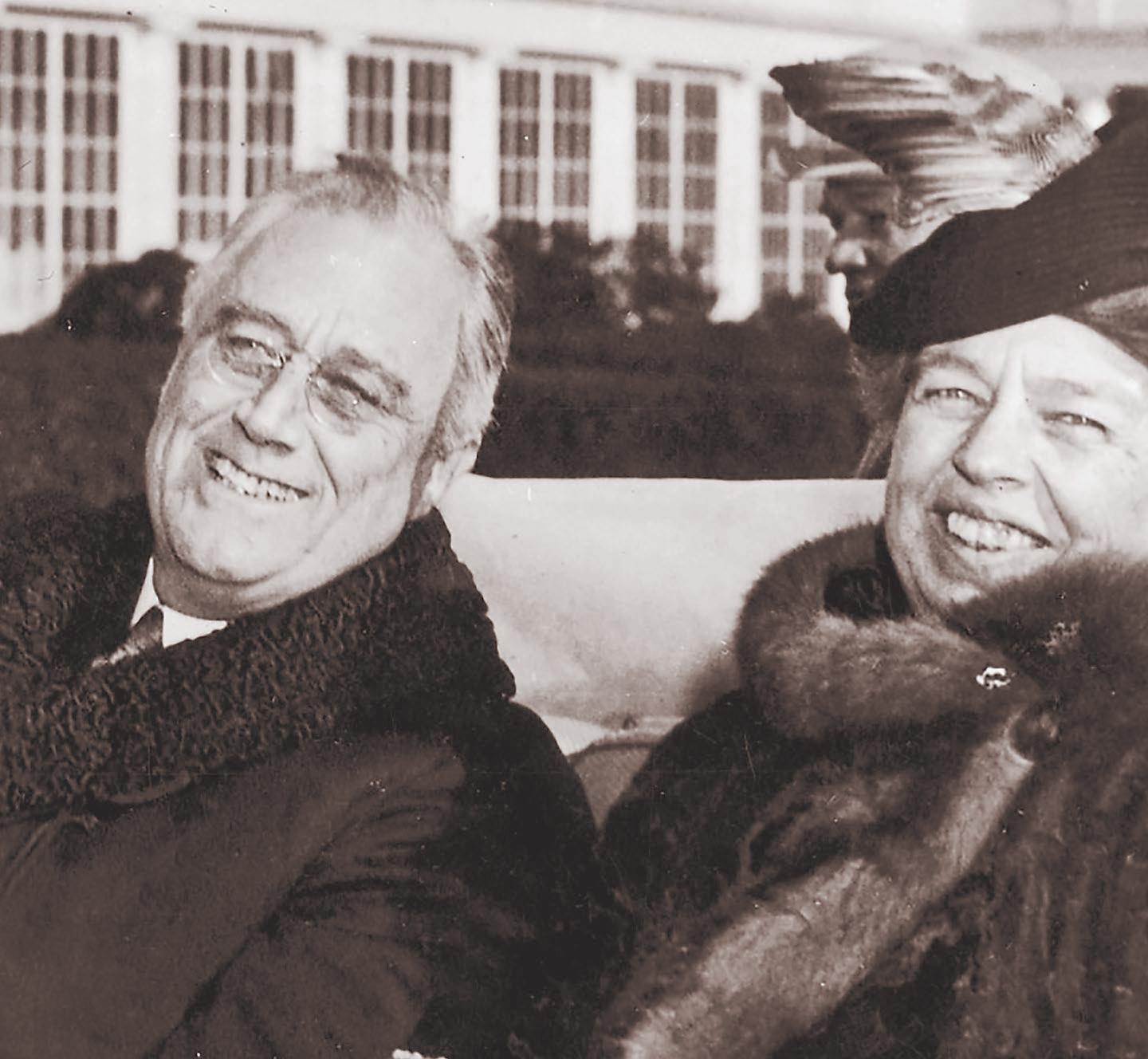
“A great leader can show the way, but others must follow and do the building.”
— Eleanor Roosevelt
11
Franklin and Eleanor Roosevelt
• Trade is key to the adoption of IBOR in all countries. Every country wants to be a part of the World Trade Organization (WTO) so they can engage in trade with other members. They should be required to have IBOR apply in their Domestic Courts as a requirement for being part of the WTO. This follows the precedent for admission into the Council of Europe and the right to trade with its 47 members. To join the Council, a country must agree to have the European Convention on Human Rights apply in their Domestic Courts. It works.

“Together and united, we are unstoppable.”
— Greta Thunberg
12
Greta Thunberg Speaking at United Nations
Governments cannot deny the fundamental rights in an International Bill of Rights (IBOR) as they are not the source of them. Every human being is endowed with unalienable rights. Rights are not gifts from government; they are rules for government. In the past 75 years both governments and civil society have failed to make rights enforceable. The bulk of progress has been unenforceable reports. “We need more courts and fewer reports.”
Eleanor Lives! (EL) is about the empowerment of those who are governed to write the rules for those who govern. That’s what a Bill of Rights does. It writes the rules for those who govern in exchange for giving them limited power to govern.
As we draft IBOR together, the voice of each person carries equal weight. Whether a teacher or a President, it is the value of their idea, not their power or position that matters. We must stop begging those in power, and tell them the rules. Democracy, or any other form of government, will not work without independent courts to uphold the rules we set forth in a Bill of Rights for those govern. It’s as hard to keep rights as it is to create them. Independent courts are part of humanity’s evolution.
When we write our list of rights together, we will find more in common than we expect, particularly among our young people. Women, for example, wherever they might be, will no longer accept being in an inferior position. Freedom of religion too. Eleanor Roosevelt (ER) asked Mahatma Gandhi to determine whether freedom of religion was a human right that should be included in the UDHR. Gandhi studied the question and decided freedom of religion should be included. He wrote to ER: “I thought that the deeper I went, the more disparity I would find. Instead, I found that the deeper I went the more there was in common.”
Using Gandhi’s insight, Eleanor Lives! brings people, nonprofits, businesses and governments together in a spirit of openness, as part of an international movement, to see what
13 t h E P lan of E l E anor l I v E s !
rights we have in common. As former Russian leader Mikhail Gorbachev wrote: “We should search for what is common to and unites people and nations, rather than what divides them.”
When thinking about rights for all, try to apply the “veil of ignorance” from philosopher John Rawls’ Theory of Justice. That is, pick your rights without thinking about your situation or country. Make your selection as if you were in any country. Use this standard: when a child is born, the rest of us clap! That child has the same rights anywhere.
All comments about the wording of the IBOR document appear on the EL website and receive a response on the site. Any changes made to the document include a reference to the person, or entity, whose comment led to the change — unless they prefer anonymity.
We encourage everyone to participate, but not everyone is needed to succeed. Margaret Mead wrote: “Never underestimate the power of a small group of dedicated people to change the world, indeed it’s the only way that change has occurred.” EL is looking for 1% of individuals, nonprofits, and businesses to lead the way — then governments will follow.
To reach 1% of all individuals, nonprofits and for-profits, and facilitate participation in all countries, requires funding. EL asks individuals and businesses — including philanthropies — to contribute 1% of their annual giving to EL. Restructuring of philanthropy is not needed, but a redirection of a small percentage is essential to move toward fixing a flawed social order rather than only responding to the results of those flaws.
Nonprofits and for-profits are also essential to building a movement. To show support across national lines (just as they do business) EL asks them to contribute a comment on IBOR, or a donation. Take a public stand for rights. Many businesses want to help develop the rule of law. Now they can.
EL also welcomes the participation of governments and the United Nations. With time, as part of an international judicial architecture, an International Bill of Rights will be presented to
14
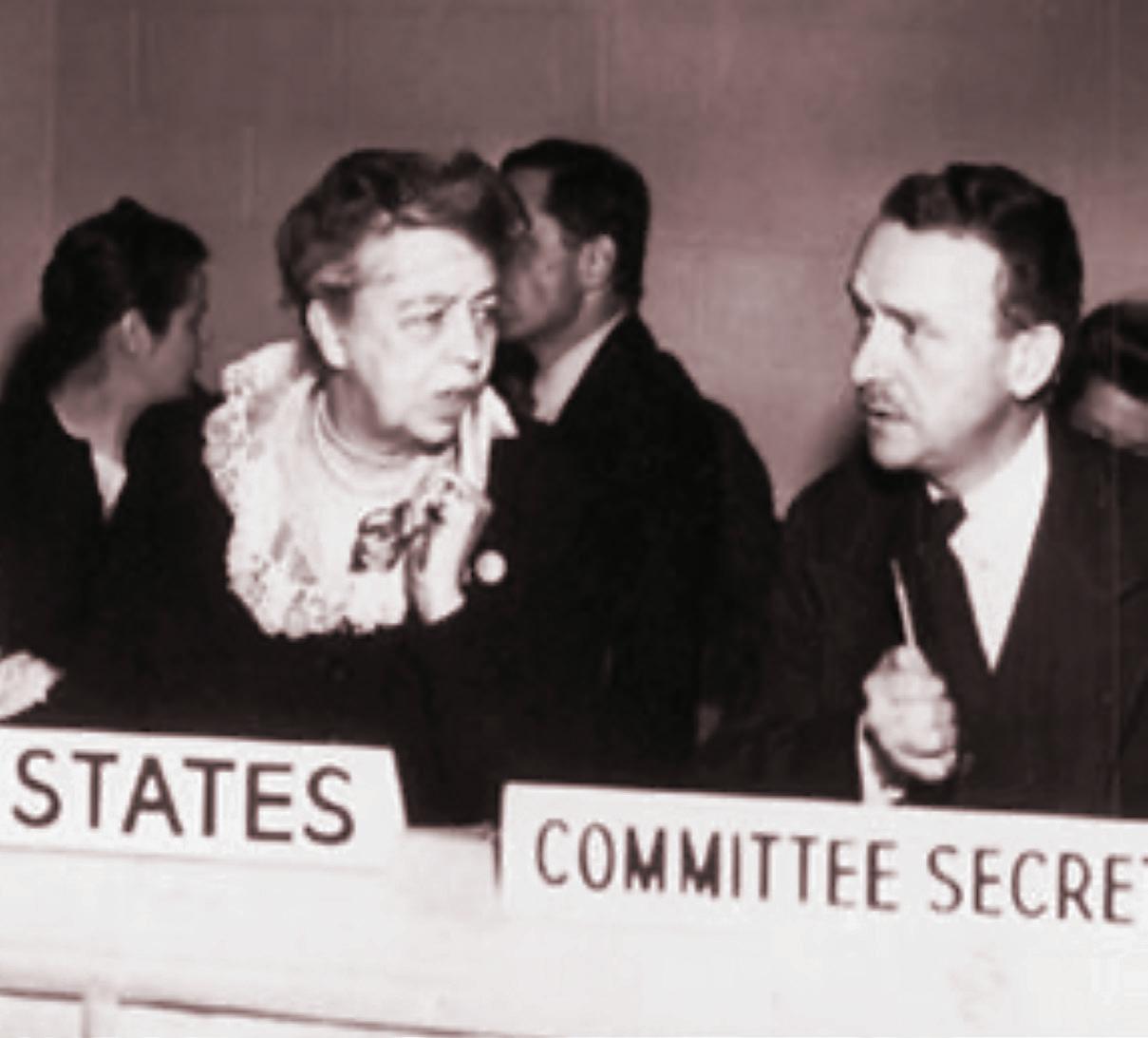
“Our goal was an International Bill of Rights.”
— John Humphrey
15
Eleanor working with John Humphrey from Canada on UDHR
the Human Rights Council at the U.N. and the International Law Commission (ILC), for their review.
With the benefit of the thinking of the Council and the Commission, and with the urging of individuals, nonprofits and businesses, governments can present IBOR as a treaty to the United Nations General Assembly for ratification. This fulfills the vision of Article 28 of the UDHR which foresees future enforceable documents making the UDHR “fully realized.”
Many thanks for your participation and enlisting others to help implement a plan for humanity to emerge as international community! As U.S. inventor and a drafter of the Constitution, Benjamin Franklin, said “If you fail to plan, you are planning to fail.” Over the past 75 years we have been failing to plan sufficiently. As author Malcolm Gladwell has written: “The world we could have is so much richer than the world we have settled for.” By carrying out the plan created by Eleanor and others, we can meet the challenges we face and enjoy a future of well-being with a healthy environment.
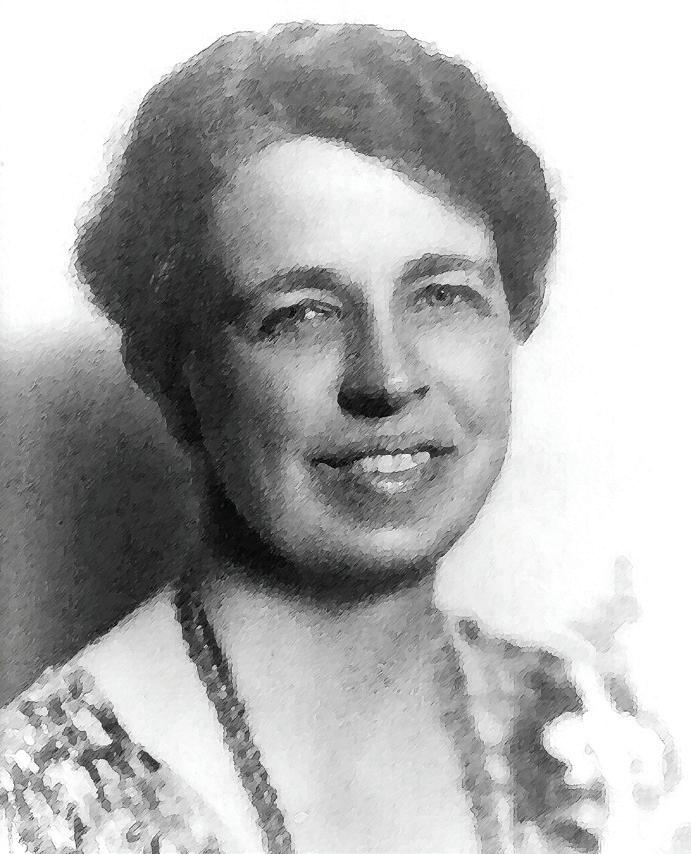
16
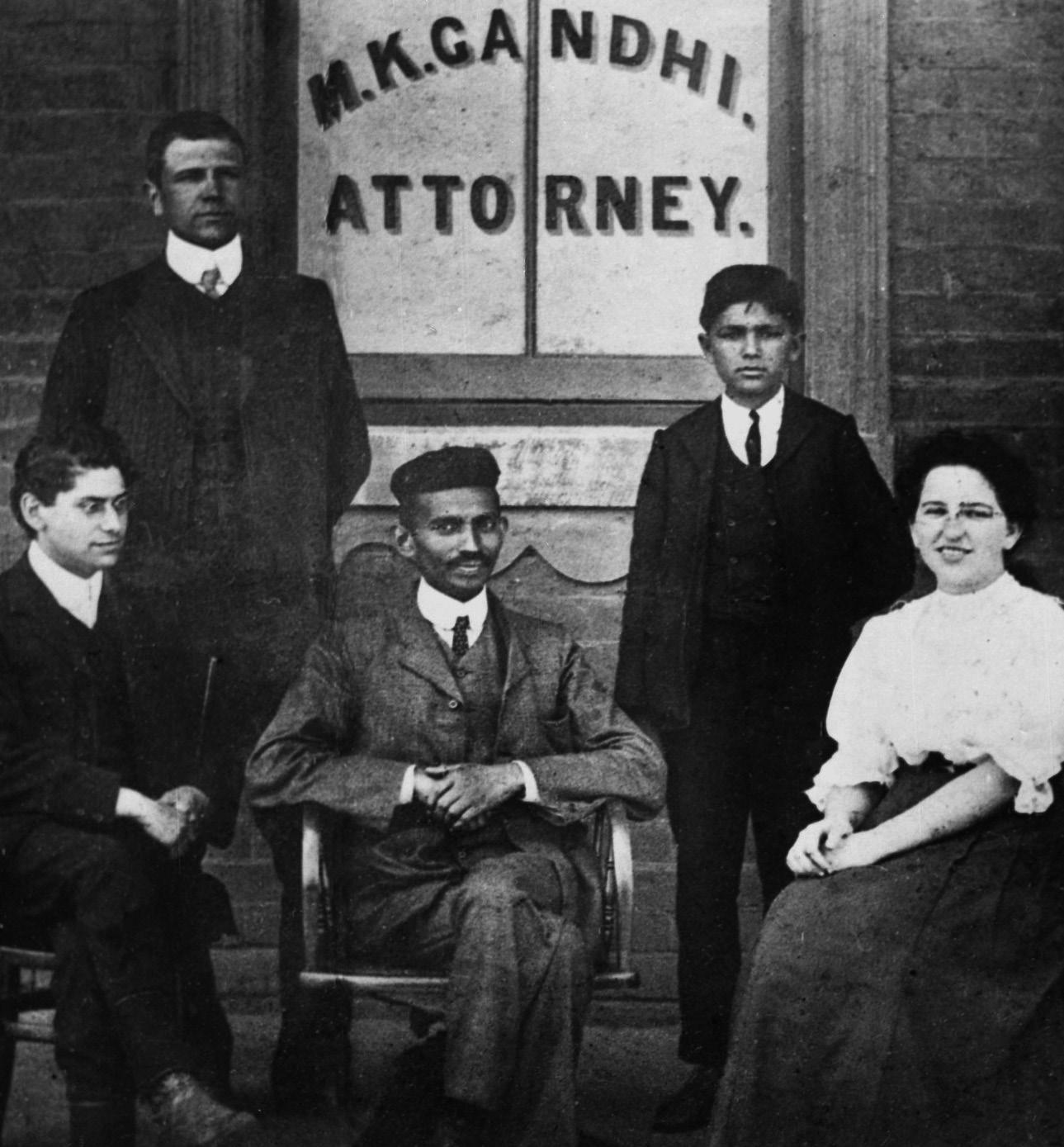
“First they ignore you, then they laugh at you, then they fight you, then you win.”
— Mahatma Gandhi
17
Gandhi Law Firm
18 PREAMBLE Article 1 Human Dignity .......................................... 20 Article 2 Environment ............................................. 20 Article 3 Freedom of Speech .................................. 21 Article 4 Health Care .............................................. 21 Article 5 Freedom of Assembly and Association ...................................... 21 Article 6 Education ................................................... 22 Article 7 Life............................................................... 22 Article 8 Physical Integrity .................................... 22 Article 9 Equality ..................................................... 22 Article 10 Freedom of Religion ............................... 23 Article 11 Representation and Voting ................... 23 Article 12 Shelter ....................................................... 24 Article 13 Work ............................................................ 24 Article 14 Physical and Intellectual Property ................................ 24 Article 15 Privacy and Information.......................... 25 Article 16 Family Life ................................................. 25 Article 17 Children .................................................... 26 Article 18 Citizenship and Movement .................... 26
V ersion 14
2024 INTERNATIONAL BILL OF RIGHTS
19 Article 19 Culture ....................................................... 26 Article 20 Arrest and Fair Trial ................................. 26 Article 21 Search and Seizure ................................. 27 Article 22 Due Process of Law................................. 28 Article 23 Responsibility for Violation of Rights ................................... 28 Article 24 Trial for Violation of Rights..................... 28 Article 25 Independent Judiciary ............................ 29 Article 26 Funding Rights and Courts ................... 29 SECTION II International Court of Human Rights Article 27 Composition of the Court....................... 30 Article 28 Terms of Service for Justices ................ 30 Article 29 Application in all Countries .................... 30 Article 30 Supremacy of Rights ................................ 31 Article 31 Submission of Claims ............................... 31 Article 32 Hearings at the International Court .................................... 31 Article 33 Court Decisions ........................................ 32 Article 34 Enforcement of Decisions ...................... 32
We the people of our international community, declare that there are certain fundamental rights that are inherent in every human being, that they are unalienable for all people, they are enforceable in the courts of all countries, and they must be taught to students in the schools of all countries from the ages of 5 to 18.
SECTION I
FUNDAMENTAL RIGHTS
Article 1 Human Dignity
Human dignity is the source of all human rights, and every person who has personally had their rights violated can enforce in court these rights, whether they are in their homeland, or any foreign land.
Article 2 Environment
Everyone has the right to a clean and healthy environment, including water safe to drink and air safe to breathe. In addition, both for the benefit of future generations, and for the species themselves, there is a right to the preservation of species and their habitat. All development projects shall prepare reports about the environmental and social impacts of the project, and provide the opportunity for public review and comment on the plans for the project.
20 INTERNATIONAL BILL OF RIGHTS
Preamble
and the Media
Everyone, and the media, has the right to freedom of speech and expression. Free speech includes freedom to see, receive, and share information and ideas in digital space, as well as on public property, or private property open to the public such as marketplaces. This includes all ideas and opinions, whether the ideas are popular or not, and includes the right to freely criticize government, religious, or business leaders through any media, anywhere. Where facts, not opinion, are offered, they must be accurate, or the speaker, or the publisher of the statement, after being given the opportunity to withdraw the statement, may be subject to a case of libel brought against them. If they refuse to withdraw the statement and lose the case, the person, or media, including social media companies who published the libel, must pay the attorney’s fees for the person who brought the suit, along with money damages.
Article 4 Health Care
Everyone has a right to free or low-cost health care, including pre-natal, vision, dental and mental care, as well as adequate food for good health.
Article 5 Freedom of Assembly and Association
Everyone has the right to gather peacefully, without weapons, in groups of any size, and to hold meetings, rallies, demonstrations, marches, and picket in public squares and other public places.
21 Article 3
Speech
Freedom of
Article 6 Education
Everyone has the right to education, from pre-school through college or university, for free or at low cost. Parents have the responsibility to enroll their children in school, unless they provide comparable schooling at home.
Article 7 Life
Capital punishment is prohibited. Because weapons of mass destruction pose a grave threat to humanity, using nuclear weapons is prohibited. Chemical, biological, or other similar types of weapons shall not be created or used.
Article 8 Physical Integrity
Torture, or cruel and degrading treatment, is prohibited.
Article 9 Equality
Everyone is equal before the law and entitled to equal protection of the law. No one will be prejudiced or favored because of their birth, race, sex, sexual orientation, marital status, age, color, disability, wealth, language, national origin, faith, religion, political opinion, or because of being pregnant. To promote equality, government may take legislative and other measures to protect or advance persons, or categories of persons, disadvantaged by previous discrimination.
22
Freedom of Religion
Everyone has the right to choose and practice their own religious beliefs, including the right to change their religion, or to have no religion. Religion and government must remain separate, including funding for religious institutions or schools.
Article 11 Representation and Voting
All power to govern emanates from the people through their choice of representatives and not from military position, religion, caste, heredity or any non-elective title or position. Starting at 18 years of age, anyone has the right to run for office and to be elected through a secret ballot, whose results can be reviewed publicly. To ensure opportunities for widespread participation in the process and protect against corruption, no elected representative will serve more than 18 years in one position. The government will provide funds and other means to candidates for national office to reach the public, as defined by law. Only individuals, not corporations or other entities, shall be allowed to contribute money or other assets to candidates or ballot measures, but individuals may contribute as a group as long as the amount given by each member of the group is made public. The total annual contribution by any individual, whether it is to one candidate or divided among several candidates and ballot measures, shall not exceed three times the median income for the country in which the person resides.
23
Article 10
Article 12 Shelter
Everyone has the right to shelter, with water, electricity, and sanitary conditions, as defined by law. Every able-bodied person 18 to 65 years old who receives assistance has the responsibility to work on behalf of society at that shelter, or elsewhere while receiving assistance.
Article 13 Work
Everyone has the right to choose their work and to a living wage, as defined by law, as well as the right to form and join a union and to participate in the activities and programs of a union, including the right to strike and to collective bargaining.
Article 14 Physical and Intellectual Property
Everyone has the right to own, buy, sell, rent or lease property. The government may not take private property except for public use. If it does, the government must pay market price for the property. The government must publish, in digital space, a public record for all property within its borders showing the parcel number and the name, or names, of those who own a piece of property, including major shareholders of the property if it is owned by a business. The public record shall include detailed boundaries, including maps that show each parcel and other nearby parcels, as well as documents showing all sales or change of ownership of the property, including through inheritance, as well as any limitations on the property. Everyone engaged in cultural, artistic, or scientific pursuits has the right to protect their intellectual property.
24
Article
Privacy and Information
Everyone has the right to privacy in his or her home, hotel room, vehicle, or vessel and to have interpersonal relations as they choose, with any race, sex, nationality or religion. Eavesdropping or surveillance of private communications and activities digitally, electronically or otherwise, is forbidden by government without a court order as part of a criminal investigation, and forbidden by individuals without a previously obtained court order based on written, stated reasons for why the eavesdropping or surveillance should be permitted. This includes all mechanical devices, drones, satellites, or other means that captures more than a public image. Everyone has a right to access, obtain, and correct information collected about them, unless such information is part of a criminal investigation or prosecution, and anyone who has their right to privacy violated has a right of action against the person or company who violated their privacy rights, including monetary damages and attorney’s fees. Private information about people such as their travels, purchases or location shall not be collected without a specific written request, and grant of permission, unless there is a court order as part of a criminal investigation.
Article 16 Family Life
People 18 years of age or older have the right to marry and choose who they will marry. Men and women are entitled to equal rights at and during marriage and at its dissolution.
25
15
Article 17 Children
Every child has the right to a name and a nationality from birth. No one under 18 may be recruited as a soldier or otherwise used in armed conflict, even voluntarily. Children 17 or younger shall not work full time during school hours.
Article 18 Citizenship and Movement
Everyone has the right to a document of citizenship. No citizen may have their citizenship revoked, nor may any citizen be denied the right to enter freely and leave their country. To share the costs of public expenditures, citizens have the responsibility to pay taxes. To help prevent the misuse of taxes, any person who provides evidence to the government about the improper use of government funds, will receive 5% to 20% of the amount recovered by the government, plus attorney’s fees and costs, as determined by the Court.
Article 19 Culture
Everyone has a right to their cultural identity, including the right to use their language and engage in their cultural traditions, provided that such exercise does not violate IBOR or prevent the exercise of other cultural traditions.
Article 20 Arrest and Fair Trial
A judicial warrant is required to arrest or imprison a citizen, or someone else visiting a country, unless the arrest occurs during or shortly after the commission of a crime. An arrestee has the immediate right to counsel, and to private consultation with counsel, the
26
same day they are arrested. Any charges shall be made in a courtroom open to the public and the media. An arrestee has the right to personally appear in court and speak on their behalf. They also have the right to counsel, including counsel provided by the government if they lack funds for counsel, and to have the validity of the arrest or detention determined within 72 hours by an independent judge. The public, including media, has the right to be present in court when the validity of an arrest is discussed, and when this determination is made. Everyone who is charged with any criminal offense has the right to be released before trial absent a showing that they will flee or are a danger to others. Within three months of arrest, the accused has the right to a fair public trial, including the presence of media from any country. The accused may choose whether the trial is by an independent and impartial court, or a jury of at least six citizens. If a jury is chosen, the jury’s decision must be unanimous. The accused has the right to be presumed innocent until proven guilty.
Article 21 Search and Seizure
Everyone is protected from unreasonable searches and seizures of their person, home, car, vessel, rental or hotel property as a guest, and belongings such as, but not limited to, a phone, tablet, computer, or other similar devices. A court must issue a warrant before the search, unless the following elements are met: the search occurs during or shortly after the commission of a crime, there is a threat of danger to the officer or another person, and there is evidence linking the items seized to the crime.
27
Article 22
Due Process of Law
To protect their rights, everyone is entitled to fair procedures. No one may be deprived of life, liberty, or property without due process of law. Everyone is entitled to counsel in a court of law when the rights in IBOR are at issue against the government, a government official, or a private individual acting closely with government officials or on behalf of the government.
Article 23 Responsibility for Violation of Rights
Any private individual, private or public company, or public official, agent, or employee of the government, as well as the government itself, that violates IBOR is not immune from liability, qualified or otherwise, and is responsible to pay damages, including attorney’s fees and costs, to the person or business whose rights have been violated.
Article 24 Trial for Violation of Rights
Any person, organization, or company that claims a violation of IBOR by government officials, agents, or employees, or any private individual or private or public company, may choose a trial by a judge or a jury of at least nine citizens, to decide if a violation has occurred. If a jury, two thirds of the jurors must agree to reach a verdict. Any person, organization, or company may also obtain injunctive relief from the Court either stopping or requiring an act in accordance with the application of IBOR.
28
Article 25 Independent Judiciary
Judges are obligated to provide a fair, impartial interpretation of IBOR, and are beholden to the rights in the document, not the person or the nation that appointed them, or any other nation or private entity. No one shall give a judge any money, gift, or service other than a salary paid by the government in an amount that is made public, and no party to a case, nor any person acting on his or her behalf, may speak to a judge about a case without the presence of, or at least knowledge of, the other party. Judicial independence requires financial independence, and any judge must earn at least three times the national median income in the country where they preside.
Article 26 Funding Rights and Courts
IBOR benefits all citizens and businesses, therefore, each ratifying country shall annually contribute 1% of its gross national product to an international fund for the creation, use, and support of education, healthcare and judicial facilities and salaries internationally. This includes the Courts described in articles 27-34. An international non-governmental organization, comprised of leaders appointed in a similar manner to the appointment of judges on the International Court of Human Rights described below, will distribute this funding in an independent, impartial manner without favoritism to the country from which they were appointed.
29
INTERNATIONAL COURT OF HUMAN RIGHTS
Article 27
Composition of the Court
An International Court of Human Rights shall be created and begin hearing cases when 50 countries have ratified IBOR without reservations. The Court shall include one judge from each country that ratifies IBOR. Regional Courts, subject to review by the International Court, and including one judge from each country in the region, shall also be organized through the continued operation of existing Regional Courts and the creation of new ones, as depicted in the map attached to this IBOR document.
Article 28 Terms of Service for Justices
The judges’ terms for the International Court of Human Rights and the Regional Courts shall be 6 years. Judges may serve up to three terms. Each judge shall have four law clerks, selected by the judge, with three of the four coming from countries other than the country that nominated the judge.
Article 29
Application of the Bill of Rights in All Countries
The rights in IBOR are enforceable in the Courts of all countries, Regional Courts, and the International Court of Human Rights.
30
SECTION II
Article 30
Supremacy of Rights
IBOR establishes a minimum standard to which all people are entitled and is superior to any conflicting law. Any country may enact a law or interpret its own Constitution to provide for rights greater than those IBOR guarantees.
Article 31 Submission of Claims
No claim for a violation of rights may be brought before the International Court of Human Rights until the claim has first been brought in the Domestic Courts of the country in which the claim arose, including an appeal to the highest Domestic Appellate Court, as well as any Regional Court. A case may originate at the Regional Court if there is a showing of strong and convincing evidence that redress from the Domestic Court is untimely or impracticable. After a decision by a Regional Court, by a vote of 1/3 of the Judges of the International Court of Human Rights, a case may be heard by the International Court.
Article 32 Hearings
Once a case invoking IBOR rights has been brought and admitted at either Domestic or Regional Courts, or the International Court, oral argument, with digital coverage to the public, shall be the norm and a transcript available to the public shall be made. The public and the media may attend any court proceeding. Regional Courts shall establish their own hearing procedures, including the number of judges in a Chamber hearing a case, but Chambers must be subject to review by three quarters of the Regional Court, randomly selected,
31
if a majority of a Regional Court votes to review the decision of a Chamber. Chambers of fifteen judges will hear cases before the International Court, fourteen of them randomly selected, along with the judge from the country in which the case arises. A Chamber’s decision at the International Court may be reviewed by the full Court if a majority of the judges on the Court agrees to review it.
Article 33 Court Decisions
A written decision by the majority of the Chamber, in either a Regional Court, or the International Court, shall be published in an official reporter. Dissenting opinions shall also be published, and each judge may write separately or join in an opinion by a group.
Article 34 Enforcement of Decisions
Decisions of the International Court of Human Rights are enforceable through the domestic courts in the country from which the case arises. Failure of any government to comply with the decisions of the Court may result in fines levied against that government, or expulsion from the International Bill of Rights treaty following a vote of two thirds of the Judges of the Court.
32
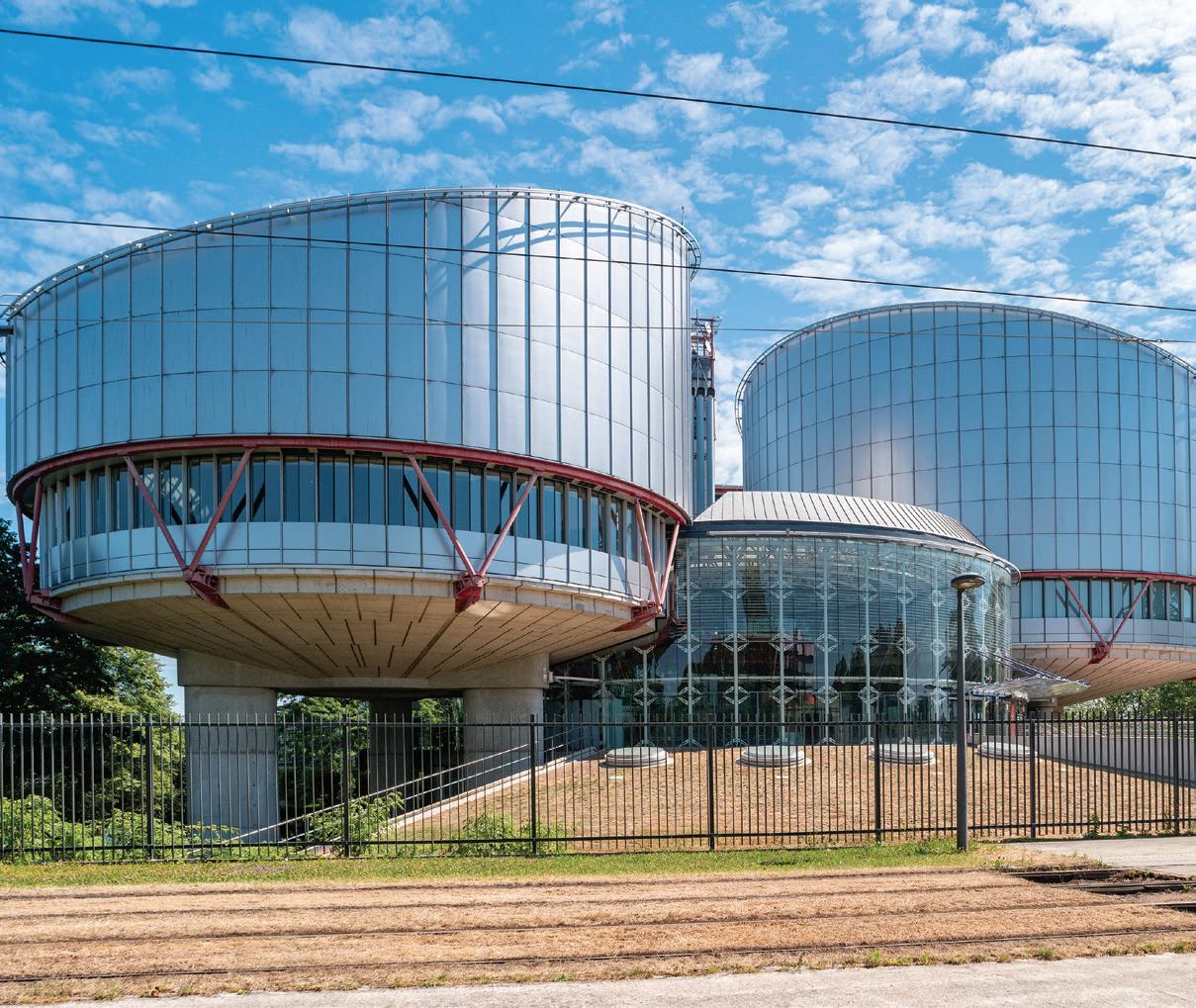
European Court of Human Rights
“It Works.”
— Rene Cassin, regarding the linkage of the UDHR and the Regional Courts when he accepted the Nobel Peace Prize
33
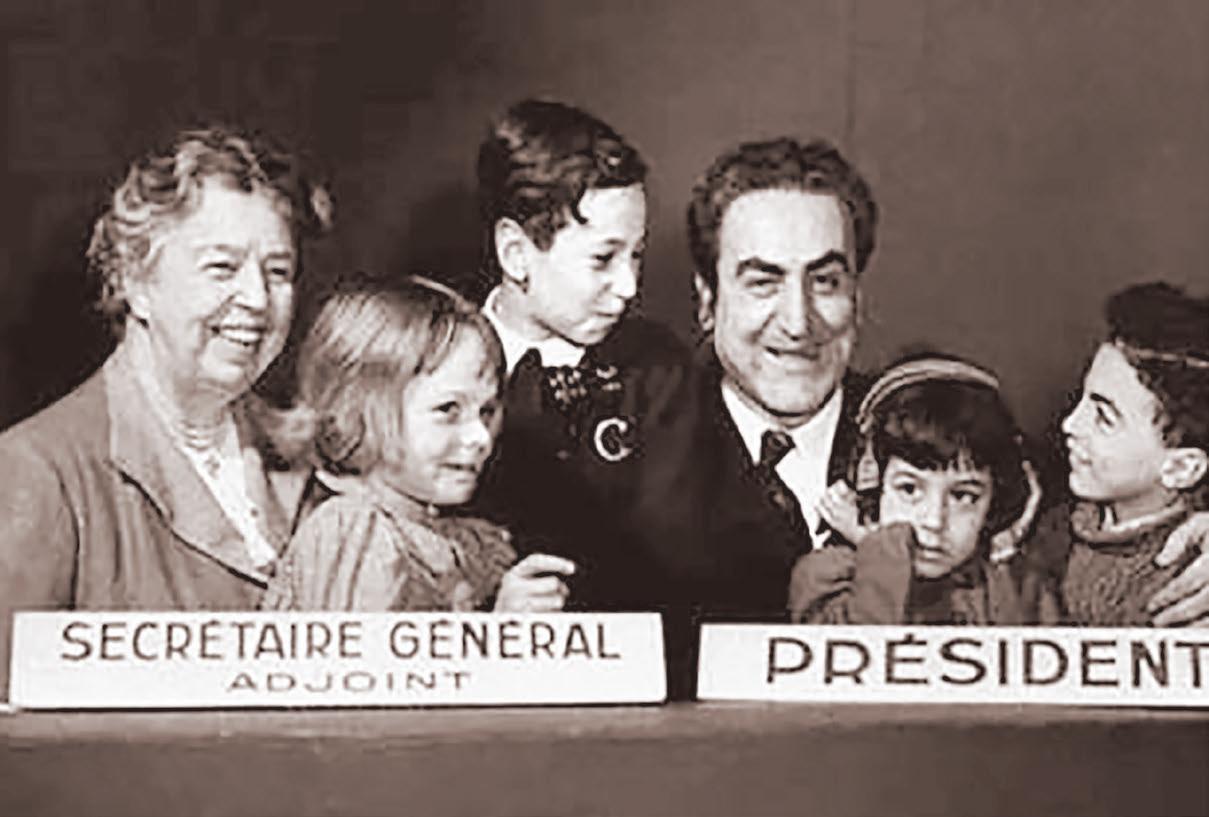
“The fastest way to change society is to mobilize the women of the world.”
— Charles Malik
34
Eleanor with Charles Malik from Lebanon working on the UDHR for all children.
